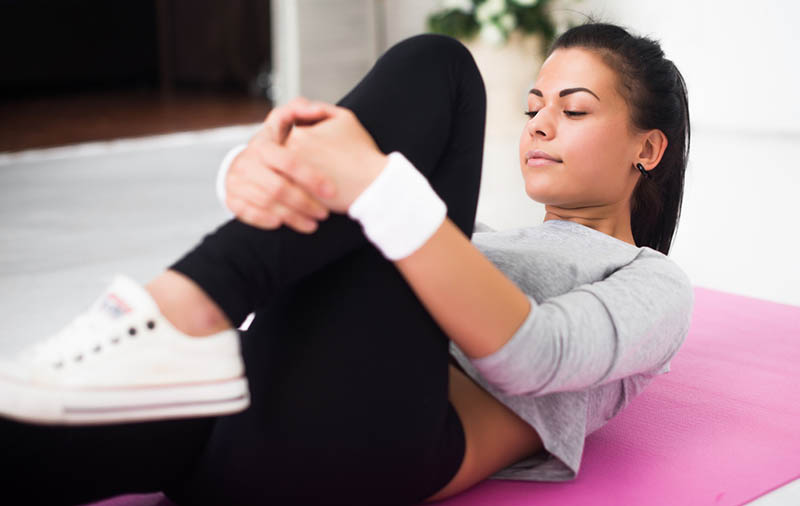We’ve all experienced the unpleasantness of stiff or sore muscles, whether they feel tight when we get out of bed in the morning or after a long walk or run. Even if the pain isn’t excruciating, the stiffness can be frustrating. In fact, it may tempt us to forego our exercise sessions, which isn’t healthy in the long run.
Why do we feel these sensations, and what are our bodies trying to tell us?
Why tightness?
Our muscles expand and contract as we exercise, and we feel stiff when the muscle fibres contract, seize up and find it difficult to expand. Here are some situations where that may occur:
- Missing minerals. Muscles need magnesium to relax and calcium to tighten. If the two aren’t in balance, muscles can contract or have spasms.
- High and dry. Muscles, which are active tissues, require water to function properly. Water contains the electrolytes that send messages between the nervous system and the muscles. When the proper amount of water is lacking this communication ability is impaired and muscles don’t work smoothly.
- Genetics. Muscles have both slow twitch and fast twitch fibres. Fast twitch fibres don’t consume oxygen and are most likely to stiffen. Most people have the same amount of each type of fibre, but if you have an excess of fast twitch fibres, you may be more prone to stiffness.
- Inactivity and imbalance. During prolonged periods of inactivity, muscles may tighten due to their restricted movement. For example, when you sit too long, the hip flexors (front hip muscles) tighten and the gluteal muscles (rear hip muscles) lengthen, causing an imbalance. The tightened muscles may feel stiff, while the lengthened muscles may weaken. Balance is the key for the long term.
- Short, but not sweet. Your muscles may tighten – i.e., cramp – while you are exercising. When your muscles contract, the fibres shorten and tension in the muscle increases. When the contraction finishes, the fibres decrease the tension and lengthen. A cramp occurs when the fibres are unable to lengthen. The ongoing shortened muscles may be due to fatigue, poor hydration or inadequate nutrition.
- Home and cooled out. Tightness, which is experienced as soreness, may be felt for 24 to 72 hours after exercise as a result of small ruptures in your muscles. It is most common after doing exercises that involve contractions where a weight is lowered.
What Relieves Muscle Tightness?

Using non-steroidal anti-inflammatory drugs reduce inflammation and pain, but they may actually slow the healing process. A post-exercise massage may be more beneficial.
Vigorous exercise causes tiny tears in muscle fibres and inflammation is the immune reaction signalling that the body is working to repair these tears. Compounds called cytokines are involved in inflammation, and they are reduced by massage. Massage also stimulates the mitochondria inside the muscle cells; these mini-machines turn glucose into the energy necessary for cell repair and functioning.
Massage is also a good remedy for muscle tightness for other reasons:
- Blood flow. Massage improves circulation and blood flow is important in healing muscle tears, because it carries nutrients necessary for muscle repair.
- Sleep therapy. Sleep is part of the recovery process, and massage can improve the quality and quantity of the athlete’s sleep.
Preventing Muscle Tightness from Occurring

- Watch your posture. Be aware of positioning when you are seated and when you sleep, ensuring that you’re not overloading particular muscles, leading to tightness.
- Strengthen muscles prone to tightness. Strong muscles take longer to tighten, since they are able to handle the work they are given. Weak muscles are more likely to get tight.
- Don’t neglect adjacent muscles. One muscle may get tight because it is required to do the work of a weak muscle next door. Don’t allow that to happen.
- Get moving. Staying in one position for any length of time, even if it’s a proper one, isn’t good for you. Moving around every so often will prevent muscles from getting tight.
The message in a nutshell? Stay loose, folks, but if you can’t, consider a massage from a Registered massage therapist!
